
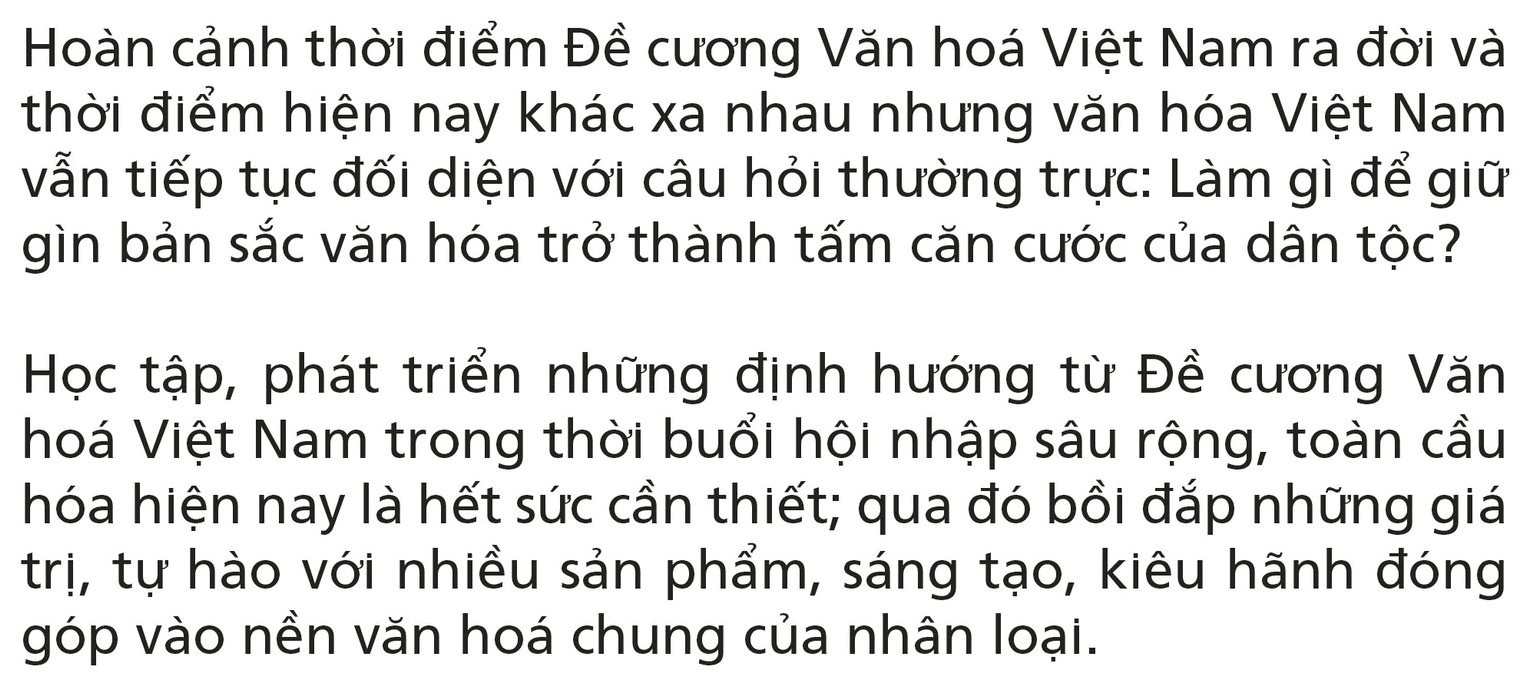

“Culture is the soul of the nation. If culture remains, the nation remains. If culture is lost, the nation is lost…”, the words of our ancestors emphasized by General Secretary Nguyen Phu Trong at the 2021 National Cultural Conference not only have a calling meaning but more profoundly, it is also a reminder of the risk of erosion, hybridization, and even loss of the core values of national cultural identity. That risk is invisible but always present, and can become a wave that sweeps away traditional values at any time, if we do not truly cherish and preserve them but are absorbed in following the trends of the times.
In the 1940s, when the context required a resolute struggle against literary and artistic sects that threatened to distract the masses from the imminent life-and-death battle, the Vietnamese Cultural Outline had to propose self-defense measures by thoroughly fighting against "classicism, romanticism, naturalism, symbolism,... to make the socialist realist trend win". In the three pillars of the outline, the principle of "nationalization" highlighted the need to have a solid foundation in national cultural identity.
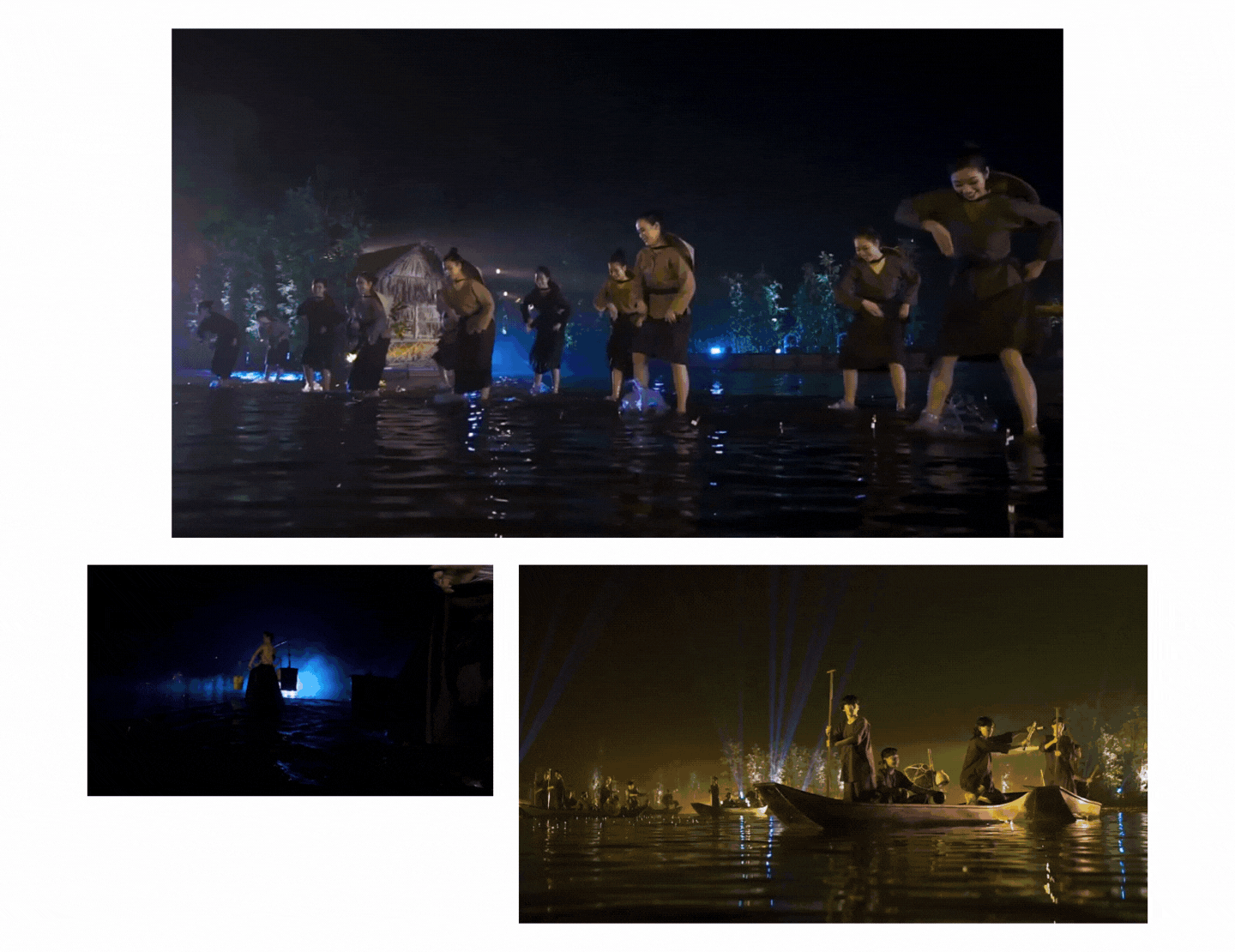
Prof. Dr. Tu Thi Loan, former Acting Director of the Vietnam National Institute of Culture and Arts, emphasized: “National identity is crystallized in national consciousness, national soul, national character, national psychology, and national cultural heritage... National identity creates the character, quintessence, "national soul, national essence" of Vietnamese culture, ensuring the nation's longevity. Cultural identity also contributes to building courage and internal strength, helping us "integrate without dissolving", standing firm in the whirlwind of globalization. Cultural identity creates resistance, becoming a counterweight to fight against cultural invasion and cultural hegemony in today's international integration".
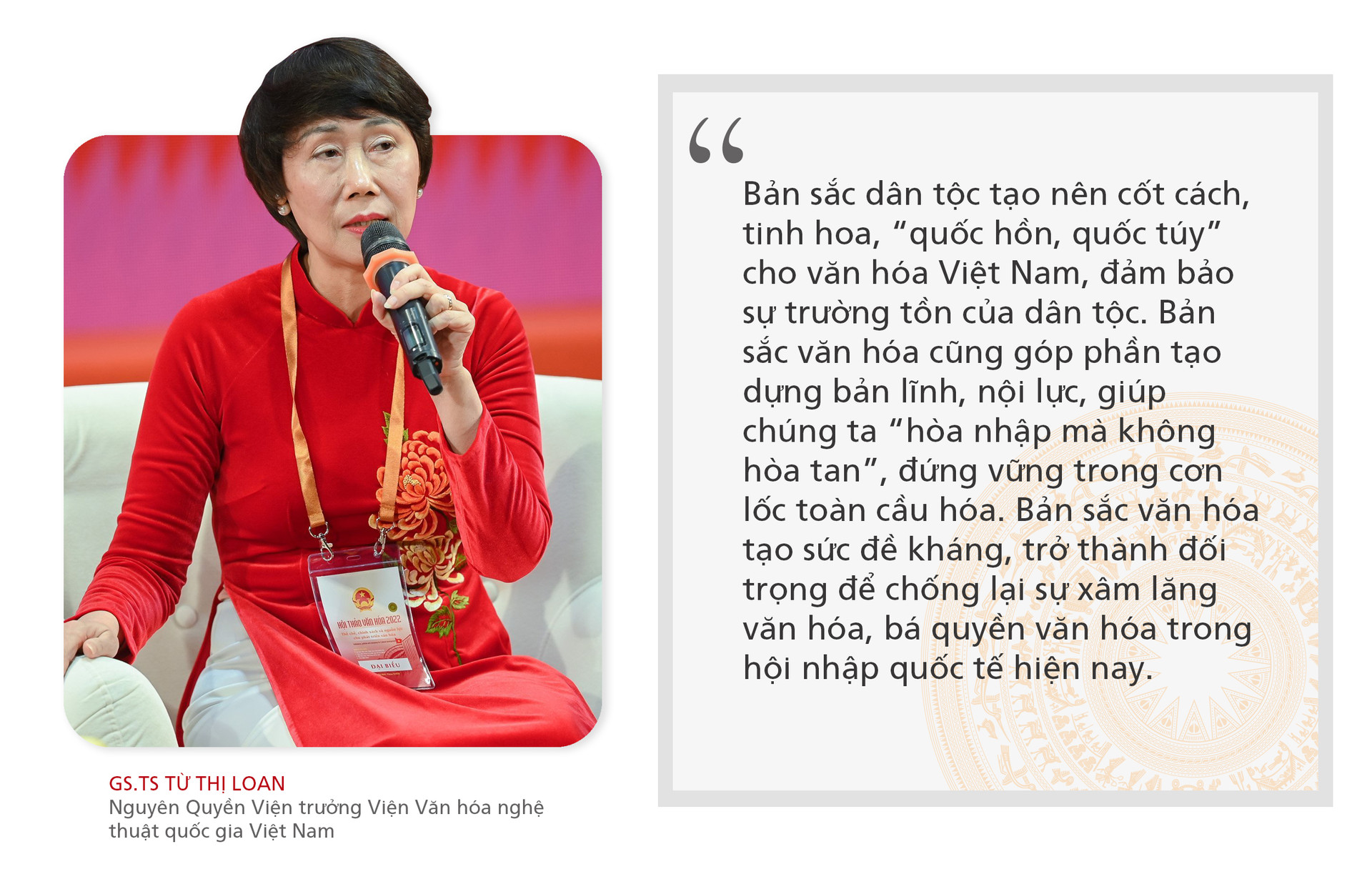
At this time, when we are opening the door to strongly integrate with the world, the issue of preserving identity becomes more urgent. On many forums, politicians , managers, and cultural experts pay special attention to the phrase "cultural invasion". Throughout the history of the nation, when being occupied by enemies, they not only established political institutions, oppressed the people, created class conflicts... but also enslaved culture, moving towards cultural assimilation. During 1000 years of Chinese domination, the Chinese feudal dynasties subdued the Vietnamese people with Chinese culture. There were periods in the nation's history that witnessed terrible cultural destruction. Until later, the French colonialists and American imperialists also wanted to expand and change the entire Vietnamese national culture, many ideas and industrial products associated with the culture of the colonial and imperialist regimes were brought in to invade.
But one thing is, the strong vitality of Vietnamese culture has not been completely subdued by the invaders. Moreover, the Vietnamese people have responded intelligently, "Vietnamizing" foreign ideas to create many extremely great cultural achievements that we ourselves could not have imagined. Literary and artistic works, novels, paintings, theater... have all established many pinnacle achievements, originating from identity along with the process of selective integration to finally arrive at the proposition that today, we always mention: Integrate but do not dissolve.


The outstanding theoretical value of the 1943 Vietnamese Culture Outline is that our Party raised three principles of the movement to build Vietnamese culture in this period: "Nationalization", "Popularization" and " Scientification ". These three principles or three mottos of cultural movement met the urgent needs of reality as a basis for the Party to lead, organize and mobilize cultural forces, intellectuals, artists and all classes of people, arouse the desire to liberate the nation, smash the fascist, colonial and feudal regimes, gain independence and freedom for the nation.

In his speech at the 40th Anniversary of the Outline (1983), comrade Truong Chinh explained in detail the reasons and purposes for proposing these principles. In particular, answering the question "Why must we nationalize?", according to comrade Truong Chinh, during nearly 100 years of domination, French colonialism introduced into Vietnam negative, reactionary elements of bourgeois and imperialist culture. They exalted the wealth of colonialism, praised the colonial policy of colonialism, instilled in the minds of Vietnamese people the spirit of slavery, dependence, worship of French culture, pursued a life of hedonism, debauchery, distanced from and despised national cultural traditions, gave rise to a national inferiority complex, diminished patriotism and the will to fight for national independence. The purpose of the principle of "Nationalization" is to make culture directly serve the cause of national liberation, to make intellectuals full of pride and courage to stand up and accept their responsibility in the cause of national liberation, liberation of the Fatherland, building and developing a new Vietnamese culture.
The desire for innovation creates a new development trend of culture, where there is no separation from the development trend of humanity. But also seeing early the dangers if a culture and arts are constantly chasing those trends and fashions, unintentionally or intentionally forgetting the values belonging to its character and identity, our Party very early outlined the correct development path so that from then until now, the team of artists, intellectuals, and elite Vietnamese ranks are always imbued with the idea that preserving culture is preserving the soul of the nation.
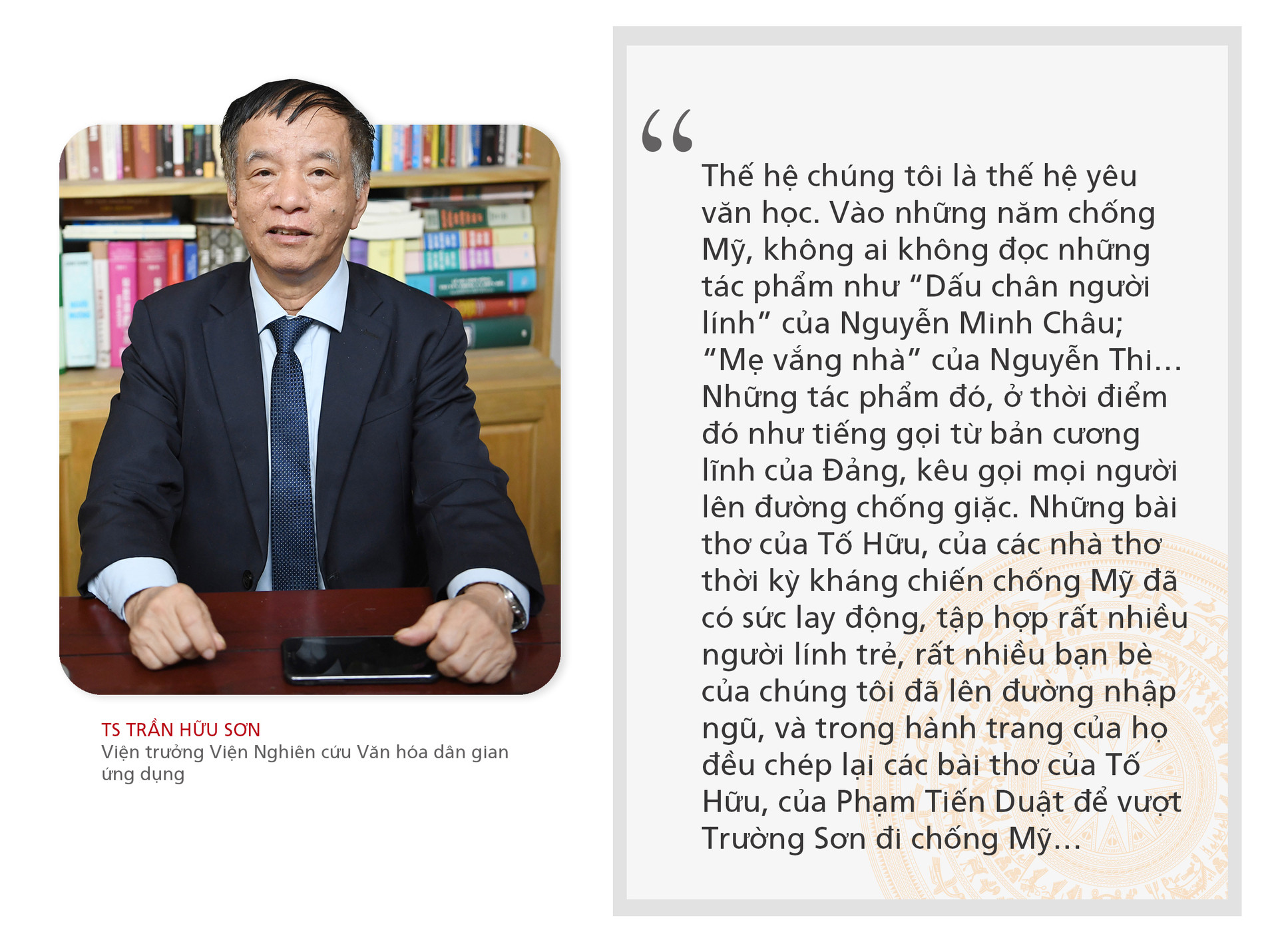
Also from that "compass", through the arduous years of resistance, facing countless challenges including the risk of enslavement and cultural assimilation, we still had a new literary and artistic movement formed in the flames of war, with many valuable works, reflecting a brilliant and glorious period of the nation. Poet Nguyen Quang Thieu, Chairman of the Vietnam Writers' Association, recalled: In 1997, when he attended the launching ceremony of a very special book published in the US. The Americans said that they had discovered the most important secret in the war in Vietnam, which was the secret of Vietnamese culture. Cultural values were created by soldiers who were poets and writers, on the front, on the battlefield. They walked on the cultural path, the righteous path outlined by the Party and the State. Through two resistance wars, during the renovation period and in the present stage, the loyalty of artists to the Fatherland, to the Party, to the people is shown through their own writings and through their sacrifices.

“The pages are full of blood during wartime, full of worries during peacetime. The renovation process has opened a very wide door, many profound changes, some writers feel confused and bewildered. But the Outline with those three spiritual pillars has brought us confidence. Never before have the Party and State accompanied and been as close to the artists as they are now…”, according to poet Nguyen Quang Thieu.
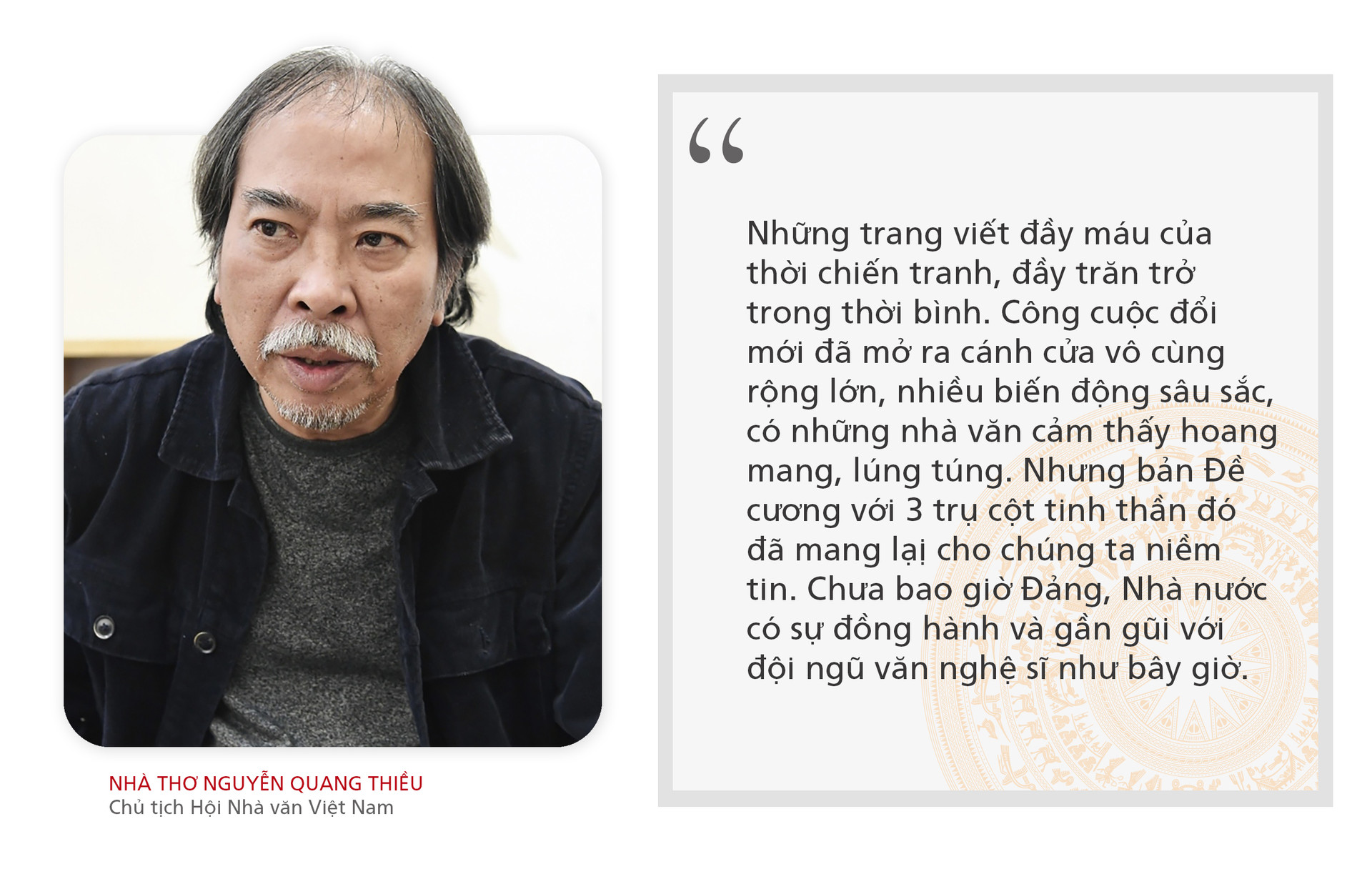
Throughout the development stages of the nation’s history, the endogenous strength, the foundation of culture, has created a connecting thread, from the traditional source to today. Songs, music, plays, literary works… created by artists are always imbued with the spirit of the times, but always in a harmonious denominator: tradition and development.


Professor Tu Thi Loan believes that nationalization in the current context must go hand in hand with internationalization, that is, promoting national cultural values to the world and penetrating other cultures. When national culture has developed to a high level, developed to the point where it is strong enough to conquer and attract other communities, then national culture has a strong international character. The higher the level of national identity a culture has, the more it is internationalized accordingly. Conversely, the more strongly it is internationalized, the more it enriches the national culture and strengthens the national identity. The lesson of the "Korean wave" (Hallyu) is an example. Only then can we not only "receive" but also "give", making certain contributions to the general picture of human culture.
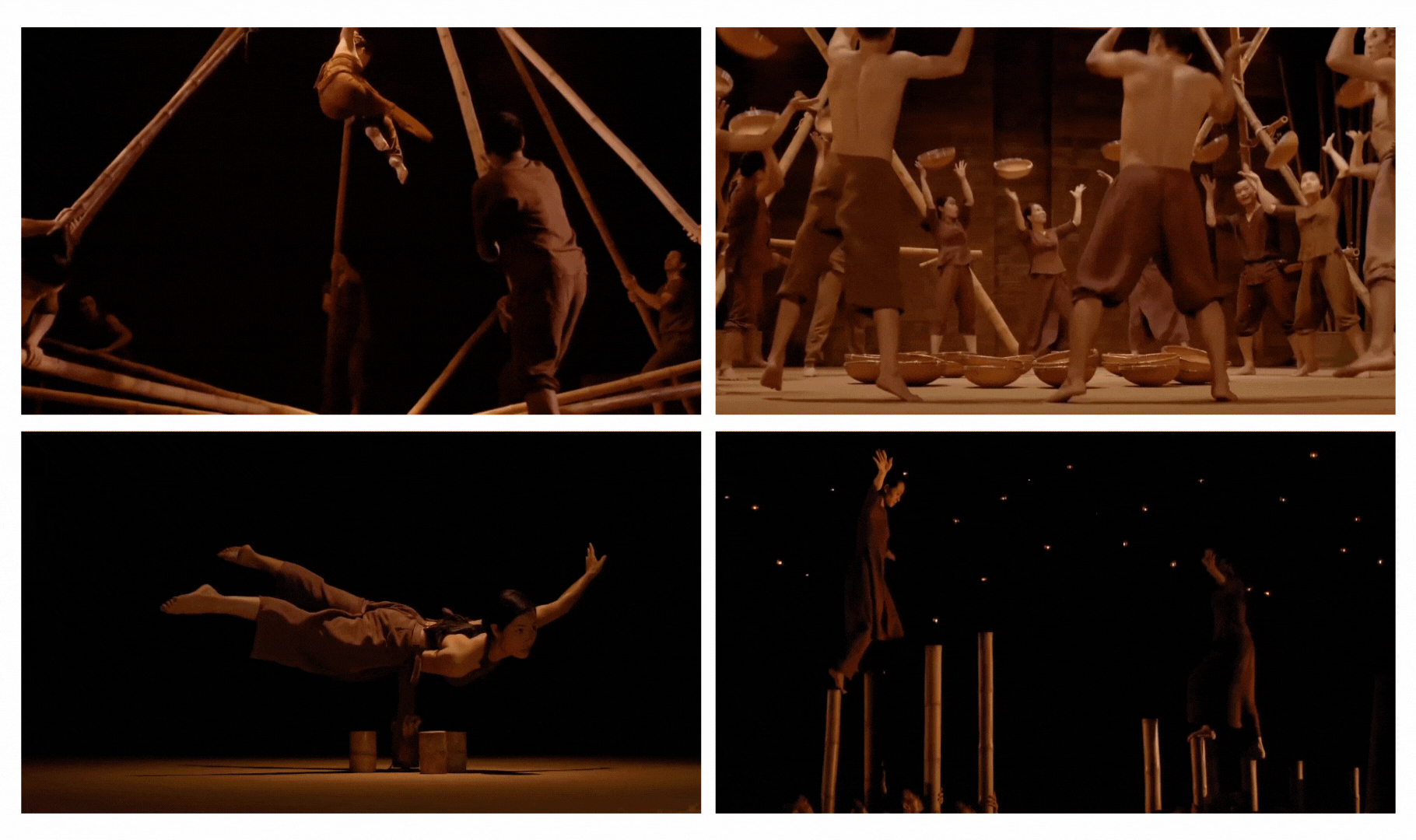
“Currently, Vietnamese water puppetry, bamboo circus, handicrafts, ao dai, pho, spring rolls... are increasingly conquering the world. We need to promote this process to become more diverse and widespread, including contemporary products such as bringing Vietnamese films, Vietnamese performing arts, and Vietnamese fine arts to penetrate more deeply into the international market…”, Ms. Loan said.
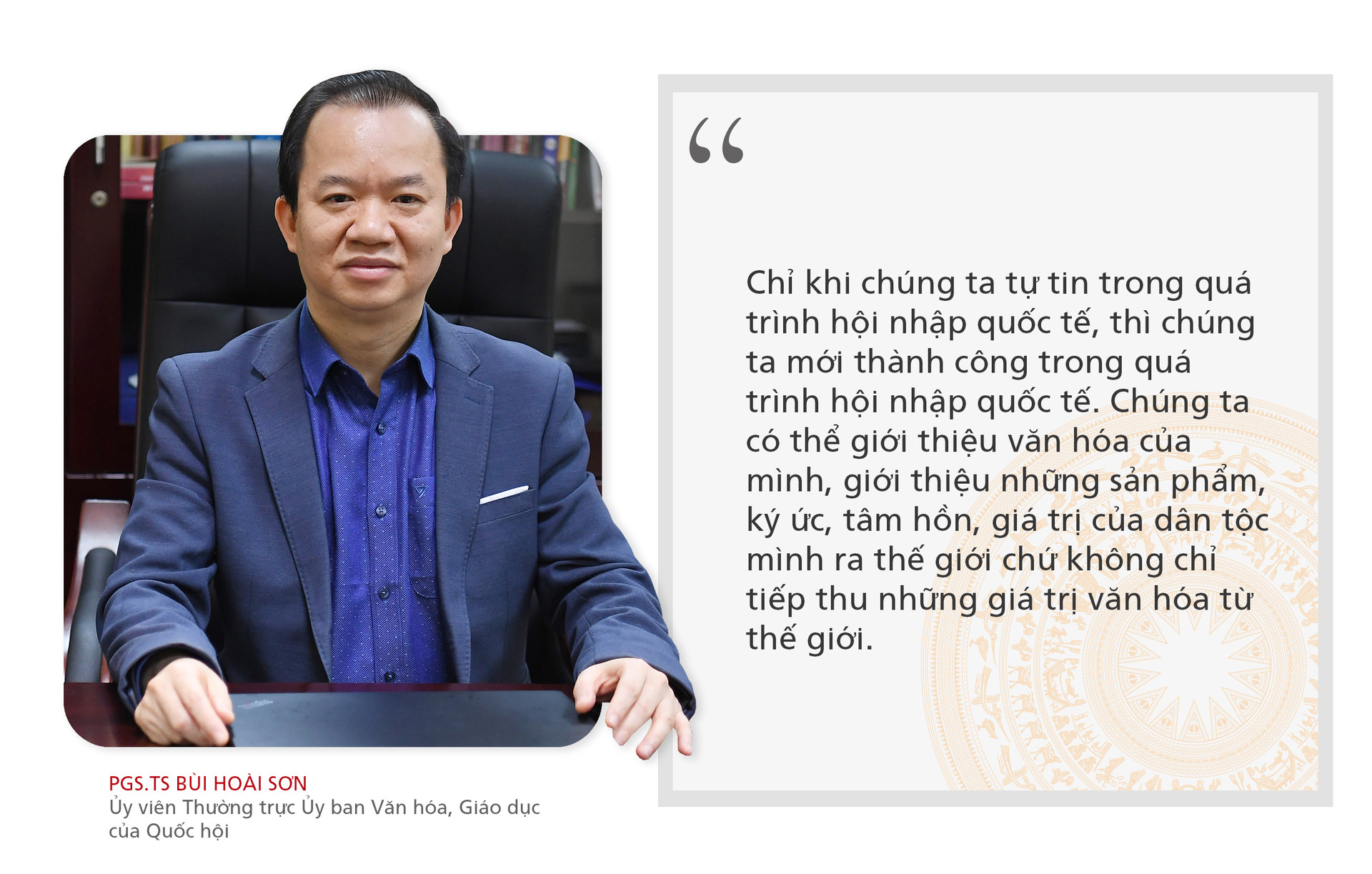
The fear of cultural identity fading away is always present in any period. As Associate Professor Dr. Bui Hoai Son, Standing Member of the National Assembly's Committee on Culture and Education, said, we are living in a globalized society, it is a process and no country can avoid it. We often talk about the term "global village", where the world is really small and of course, in that village, any country, any culture is greatly influenced by different cultures. "In the world, people are worried about the trend of "Americanization", eating American style - eating fast food, drinking American style - drinking carbonated drinks, speaking American - English, watching American movies, listening to American music... That is the most typical sign of the globalization process. Countries, not just Vietnam, really have to assert their mettle to fight against the risk of assimilation, the risk of being dissolved in this fierce globalization process.
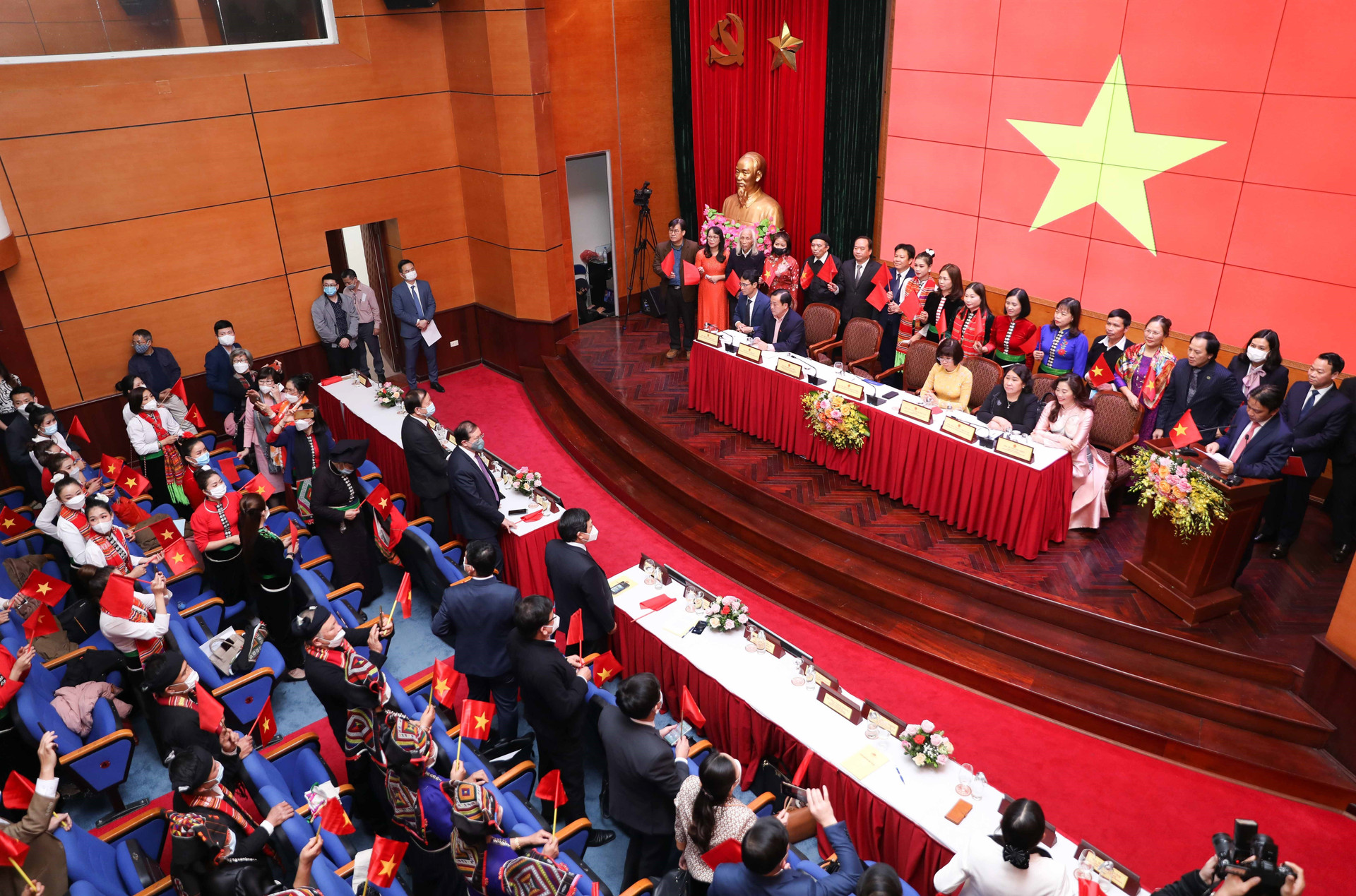
On the other hand, no country wants or takes lightly its people and cultural identity to become a pale copy of other cultures. That is why, in 2005, UNESCO issued a convention on the protection and promotion of the diversity of cultural expressions, as a way for countries to be more aware of their national cultural sovereignty. There, we not only see the story of territorial sovereignty, maritime sovereignty but equally important, cultural sovereignty.
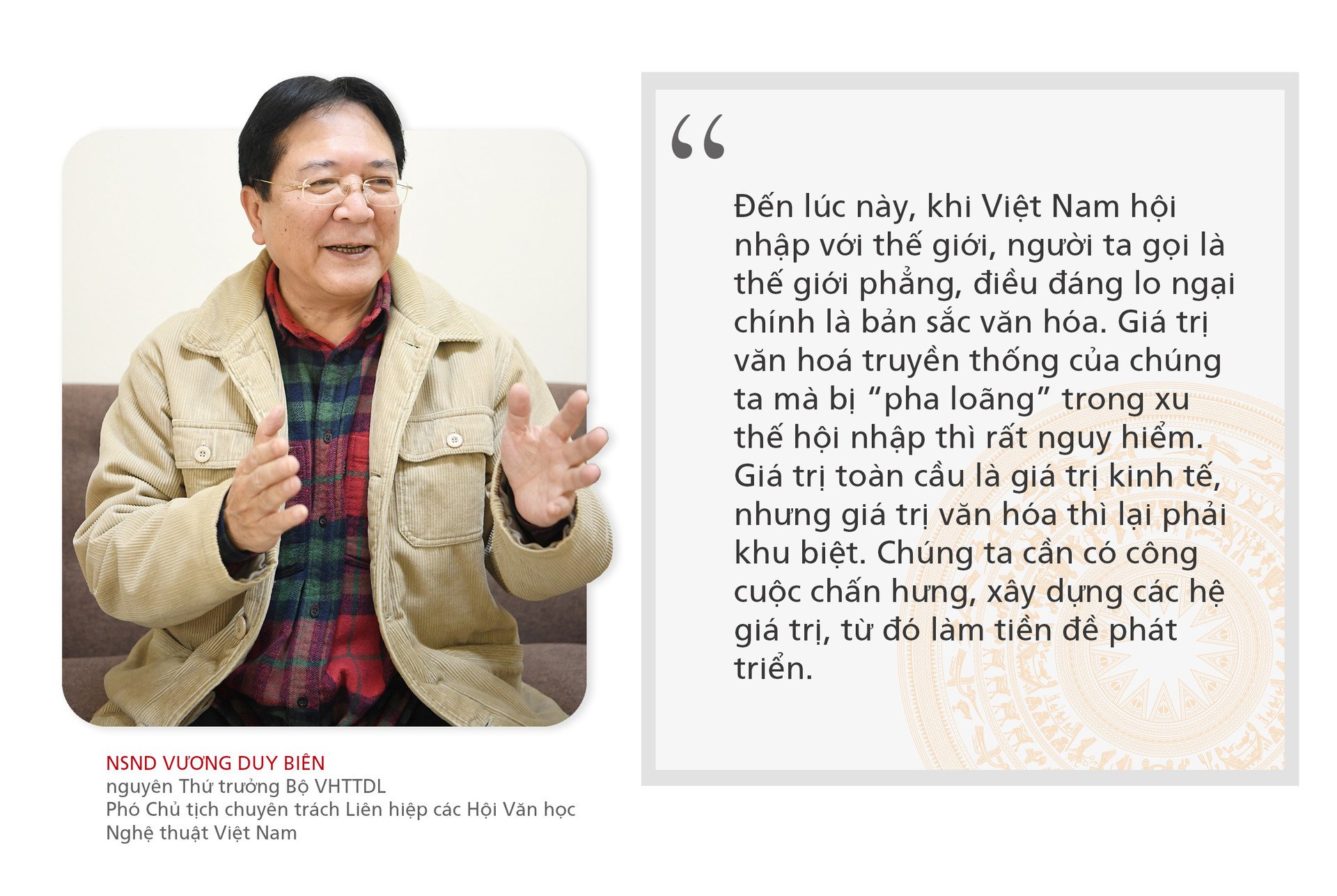
The question is “How to integrate without assimilating?”. Many politicians and culturalists believe that, in order to do that, countries must form a system of laws and policies to promote and protect their cultural values. If we do not have a cultural identity, do not understand and practice the cultural values of our people and the cultural identity of our country, we will not be confident in the process of international integration.
“And only when we are confident in the process of international integration, will we be successful in the process of international integration. We can introduce our culture, introduce our products, memories, souls, and values to the world, not just absorb cultural values from the world…”, Associate Professor Dr. Bui Hoai Son emphasized.
Understanding the most important thing for cultural development in the current period, continuously in the past time, our Party has organized many large-scale national cultural programs. From the 1943 Cultural Outline to the 2021 National Cultural Conference, we realize that the profound, guiding ideas on building a revolutionary culture with principles such as nationalization, popularization, and scientificization have truly "lighted the way for the nation", creating a comprehensive strength for the nation, to lead our country from one victory to another. There, Vietnamese culture, regardless of the circumstances, always maintains its national character, character, and spirit./.
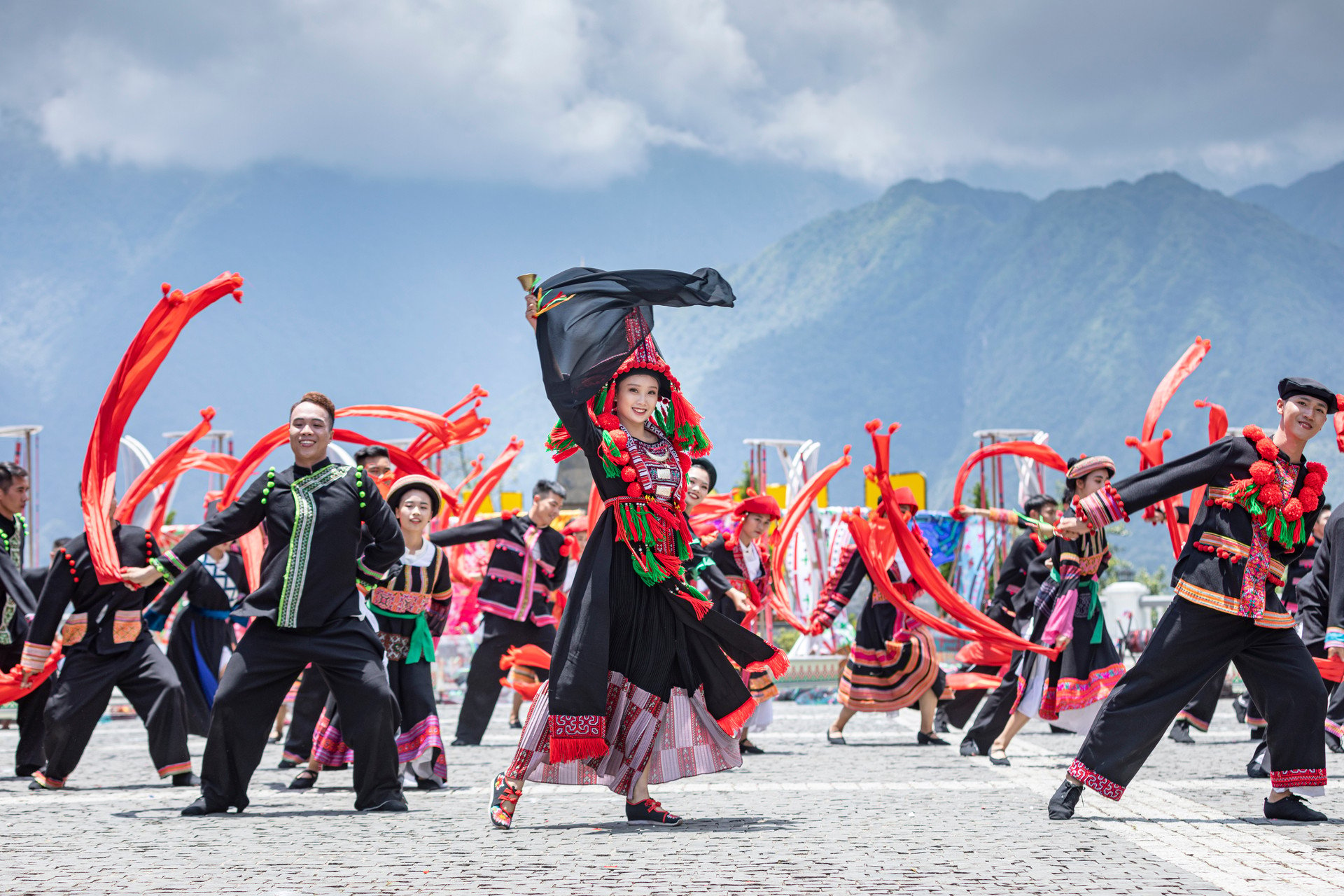

Performed by: Ha Phuong - Van Ha - Moc Mien
Photo: Document - Vu Toan - Le Viet Khanh - Thanh Tung
Source




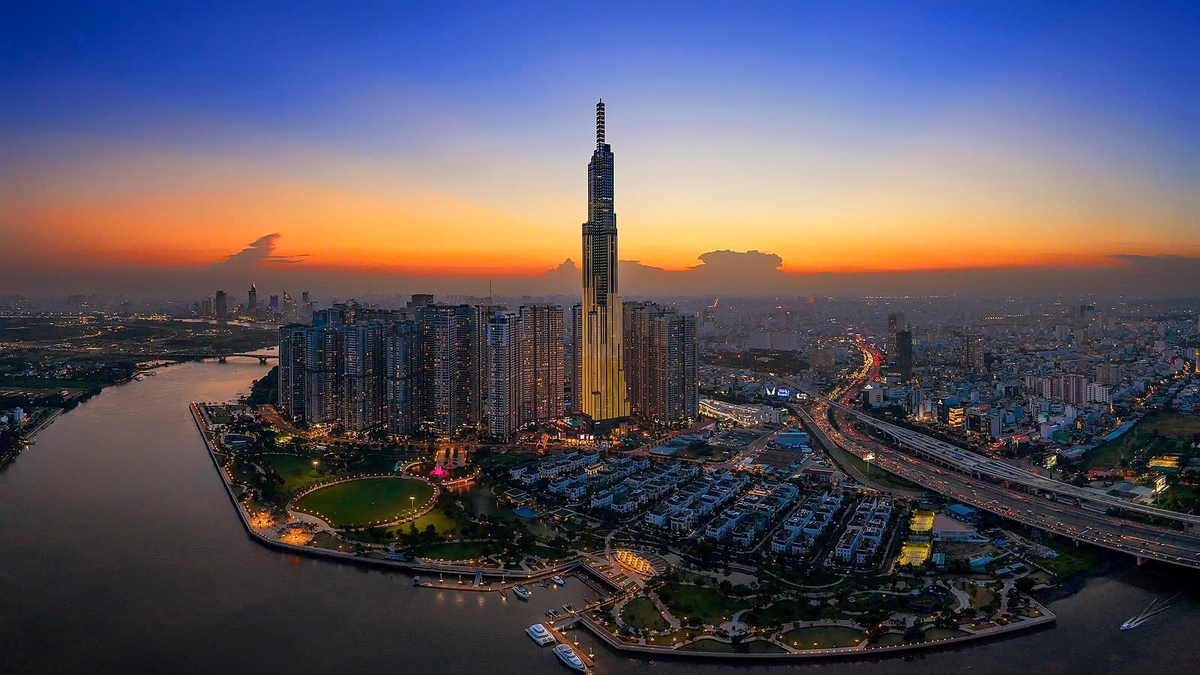



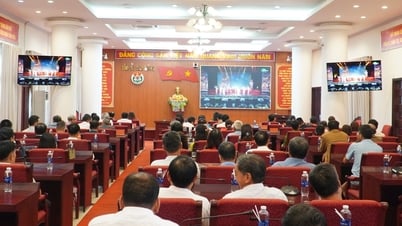

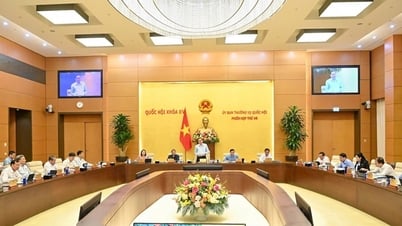
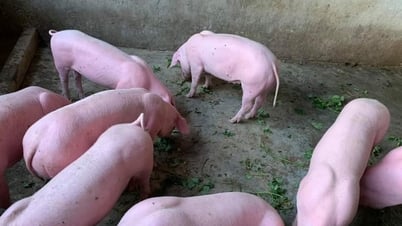

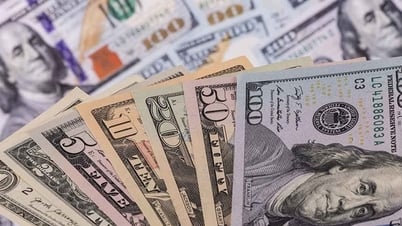




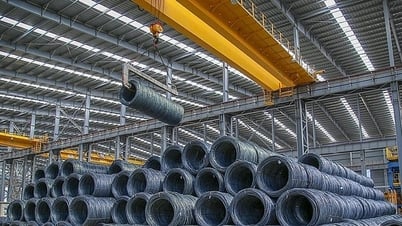

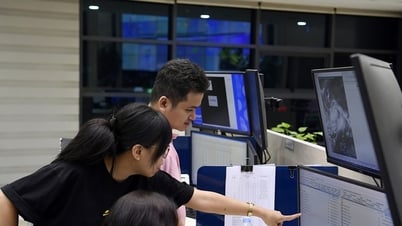
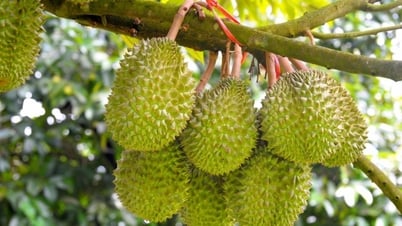

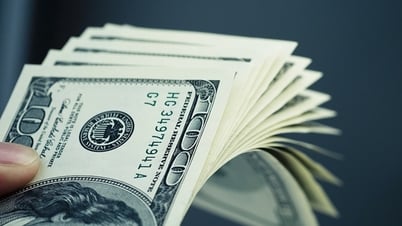













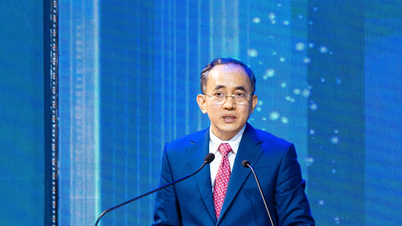










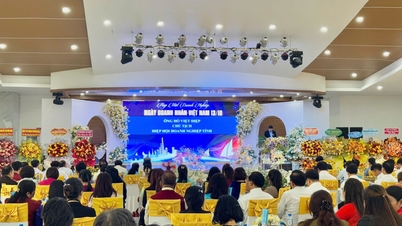




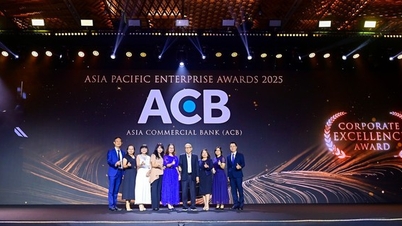







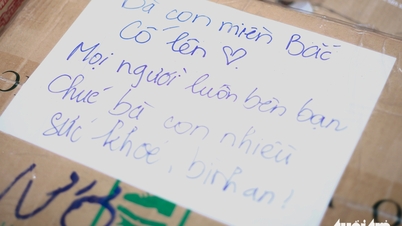

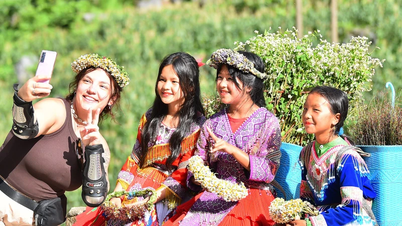
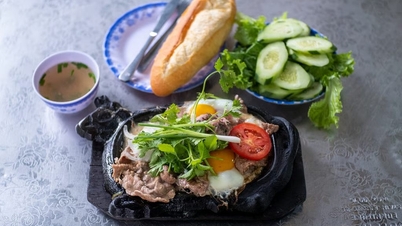



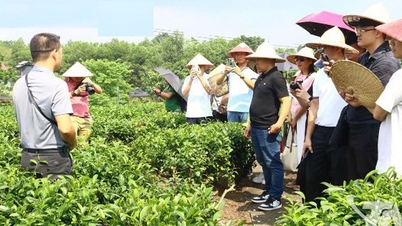


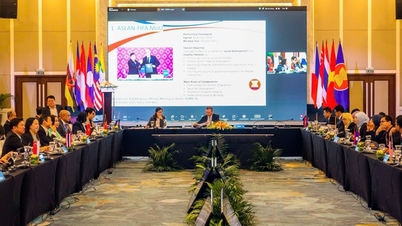
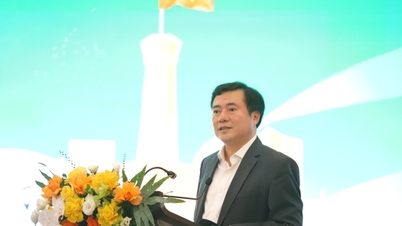
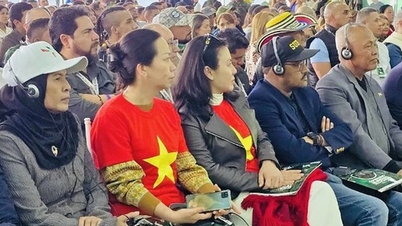
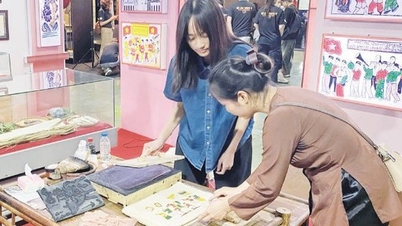
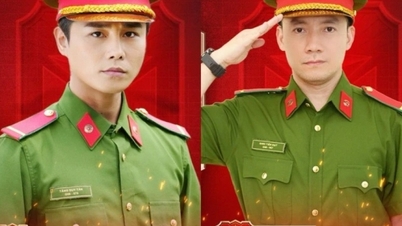

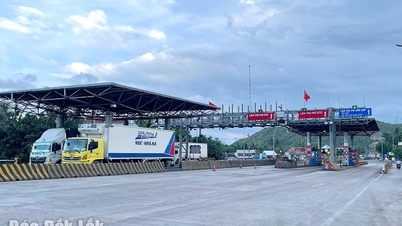

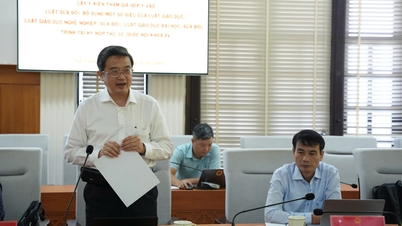

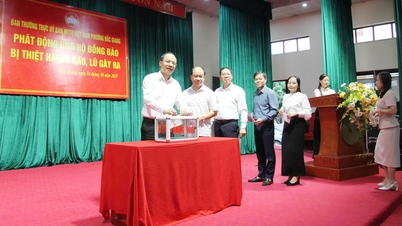

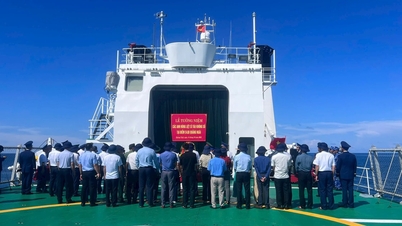
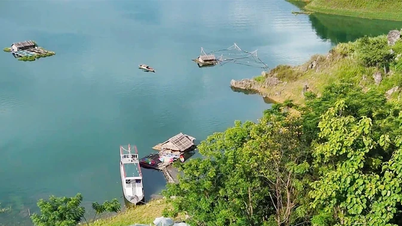















Comment (0)